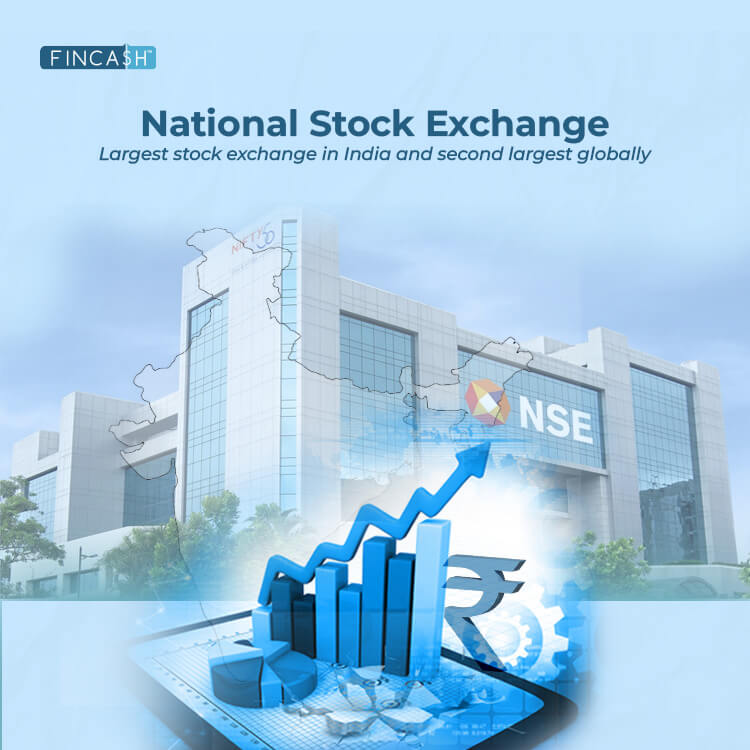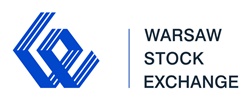
Table of Contents
National Stock Exchange
About National Stock Exchange
The National Stock Exchange of India Ltd. (NSE) is the leading stock exchange in India and the second largest in the world by nos. of trades in equity shares from January to June 2018, according to World Federation of Exchanges (WFE) report. NSE launched electronic screen-based trading in 1994, derivatives trading (in the form of index futures) and internet trading in 2000, which were each the first of its kind in India.
NSE has a fully-integrated business model comprising our exchange listings, trading services, clearing and settlement services, indices, Market data feeds, technology solutions and financial education offerings. NSE also oversees compliance by trading and clearing members and listed companies with the rules and regulations of the exchange.
Mr. Ashok Chawla is the Chairman of the Board of Directors of NSE and Mr. Vikram Limaye is the Managing Director and CEO of NSE.

NSE is a pioneer in technology and ensures the reliability and performance of its systems through a culture of innovation and investment in technology. NSE believes that the scale and breadth of its products and services, sustained leadership positions across multiple asset classes in India and globally enable it to be highly reactive to market demands and changes and deliver innovation in both trading and non-trading businesses to provide high-quality data and services to market participants and clients.
Till 1992, BSE was the most popular stock exchange in India. BSE used to function as a floor-trading exchange. In 1992 NSE was established as the first demutualized stock exchange in the country. It was also first stock exchange in India to introduce technologically advanced, screen-based trading platform (as opposed to floor-trading of BSE). This screen-based trading platform brought a revolution in bourse business in India. Soon NSE became the preferred stock exchange of traders/investors in India.
Headquartered in Mumbai, NSE offers Capital raising abilities for corporations and a trading platform for equities, debt, and derivatives -- including currencies and mutual fund units. It allows for new listings, initial public offers (IPOs), debt issuances and Indian Depository Receipts (IDRs) by overseas companies raising capital in India.
Talk to our investment specialist
Products
Equity & Equity Linked Products
- Cash Market (Equities)
- Indices
- Mutual Funds
- Exchange Traded Fund
- Initial Public Offerings
- Offer for Sale
- Institutional Placement Program
- Security Lending and Borrowing Scheme
- Sovereign Gold Bonds Scheme
- Derivatives
Equity Derivatives
- Currency Derivatives
- NSE Bond Futures
- Debt
Debt Market
- Corporate Bonds
- Electronic Debt Bidding Platform (NSE-EBP)
NSE Trading Time
Trading in equities takes place on all the week days, i.e., Monday to Friday. Holidays are declared by the Exchange in advance.
The market timings of the equities segment are:
Pre-open session
- Order Entry and Modification Open:
09:00 hrs - Order Entry and Modification Close:
09:08 hrs*
*with random closure in last one minute. Pre-Open order matching starts immediately after the close of pre-open order entry.
Regular trading session
- Normal/Retail Debt/Limited Physical Market Open:
09.15 hrs - Normal/Retail Debt/Limited Physical Market Close:
15:30 hrs
Closing session
- Between:
15.40 hrs and 16.00 hrs
Block deal session
- Morning Window: Between
08:45 AM to 09:00 AM - Afternoon Window: Between
02:05 PM to 2:20 PM
Note:The Exchange may also reduce, extend or advance reduce trading hours whenever necessary.
Associate / Affiliate Companies
1. National Securities Depository Ltd. (NSDL)
NSDL is a depository for securities listed on Indian exchanges that are held and settled in dematerialized form. The enactment of Depositories Act in August 1996 paved the way for establishment of NSDL, the first depository in India. NSE joined hands with the Industrial Development Bank of India (IDBI) and the Unit Trust of India (UTI) to set up NSDL, the first depository in India.
2. National Commodity & Derivatives Exchange Ltd. (NCDEX)
NCDEX is a professionally-managed online commodity exchange, set up through collaboration with the Life Insurance Corporation of India, the National Bank for Agriculture and Rural Development and ten other Indian and foreign partners.
NCDEX offers trading in agricultural commodities, bullion commodities and metals.
3. Power Exchange India Limited (PXIL)
Power Exchange India Limited (PXIL) is India’s first institutionally promoted Power Exchange which began operations in 2008.
PXIL provides an electronic trading platform for India-focused electricity futures. Participants in PXIL include electricity traders, inter-state generating stations, power distribution licensees and independent power producers.
Pros of Listing on the National Stock Exchange
- The National Stock Exchange is the largest exchange in the county in terms of trading volumes. In 2010-2011, NSE reported a turnover of
35,77,412 croresin the equities segment. - The application of automated systems brings transparency in trade matching and settlement process.
- The sheer volume of trading ensures lower cost on the Exchange, which reduces the cost of trading to the investor.
- The Exchange uses cutting-edge technology, which allows orders to be filled more efficiently. This results in greater liquidity.
- NSE has successfully completed short settlement cycle of more than 2800 settlements without any delays.
Corporate Office
National Stock Exchange of India Ltd., Exchange Plaza, C-1, Block G, Bandra Kurla Complex, Bandra (E) Mumbai - 400 051
Active Stock Exchanges in India
Currently, there are 7 active stock exchanges in India viz.
- Ahmedabad Stock Exchange Ltd.
- BSE Ltd.
- Calcutta Stock Exchange Ltd.
- India International Exchange (India INX)
- Metropolitan Stock Exchange of India Ltd.
- National Stock Exchange of India Ltd.
- NSE IFSC Ltd.
All efforts have been made to ensure the information provided here is accurate. However, no guarantees are made regarding correctness of data. Please verify with scheme information document before making any investment.












